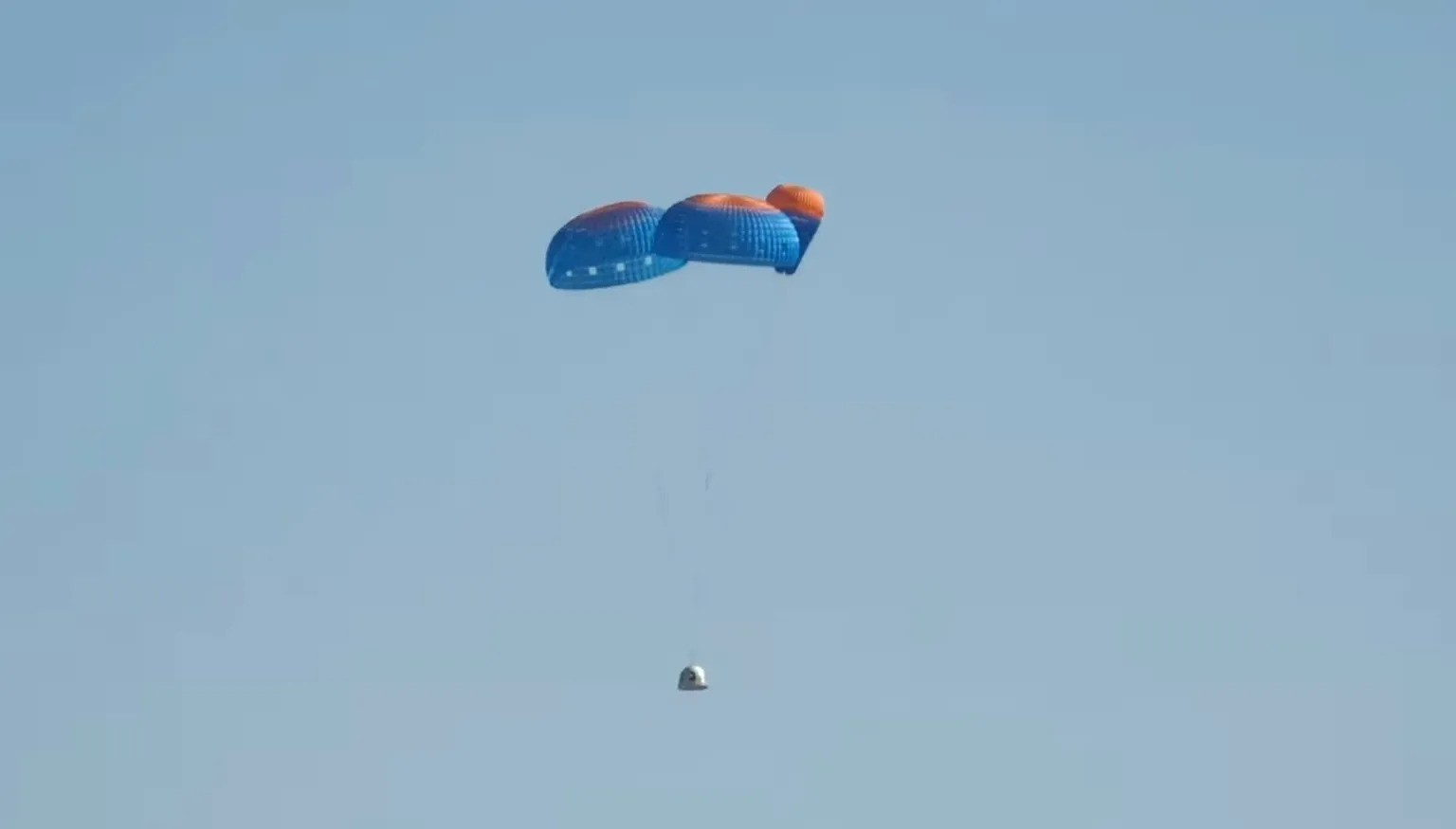Blue Origin has finally figured out what happened to the New Shepard rocket’s parachute on May 19 of this year. It didn’t open, but overall the flight was successful. The next launch is scheduled for August 29.

New Shepard’s new mission
Blue Origin announced on August 23 that it had scheduled New Shepard’s next launch, NS-26, for no earlier than August 29. The spacecraft is scheduled to launch at the company’s spaceport in West Texas at 9 a.m. ET.
This flight will be the first for New Shepard since the NS-25 mission on May 19. Although the mission was successful, one of the three parachutes opened by the crew capsule during the descent did not fully deploy. The company noted at the time that the capsule was designed to land with only two parachutes.
“We identified the direct cause for the issue observed on NS-25 and implemented corrective actions that are in place for our next flight,” Blue Origin said in a statement released on August 23 to SpaceNews. “Our investigation showed the parachutes themselves were nominal and packed correctly. We focused on the dis-reefing system that transitions the parachutes from the reefed to disreefed state that did not function as designed on one of the three parachutes on NS-25.”
Blue Origin didn’t specify exactly what the problem was with the parachute opening system that controlled the deployment of the parachutes, or what measures were taken to fix it. The company said the capsule could safely land with a single parachute “and has additional safety features and redundancies via our soft landing system and crew seat design.”
After the parachute incident, Blue Origin informed NASA because its parachutes use components similar to those used on commercial spacecraft such as Boeing’s CST-100 Starliner, which at the time was being prepared for launch as part of a Crew Flight Test (CFT) mission.
At a May 31 CFT briefing, Steve Stich, NASA’s commercial crew program manager, said that during the New Shepard flight, the line that limited the parachute’s deployment was not cut as expected and thus prevented it from deploying further. He said that although the Starliner parachutes used a similar cut, no problems with it had been found during testing.
Manned flight of the New Shepard
NS-26 will be New Shepard’s second crewed flight after more than a year-and-a-half of interruption caused by the engine failure during New Shepard’s single payload flight in September 2022. New Shepard made another flight in December 2023 with payload only, and resumed manned flights with NS-25 in May.
The company announced the NS-26’s six-member crew a month ago. Among those who will fly into space is Rob Ferl, a University of Florida professor and proponent of commercial suborbital research who conducts NASA-funded experiments during the flight.
Another person flying on NS-26 is Karsen Kitchen, a 21-year-old student at the University of North Carolina and daughter of previous New Shepard participant Jim Kitchen. Blue Origin said she would become the youngest woman to cross the Karman Line, a 100-kilometer altitude often used as a definition of space.
Other passengers on NS-26 include Nicolina Elrick, a philanthropist and entrepreneur; Eugene Grin, who works in real estate and finance; cardiologist and Vanderbilt University associate professor Eiman Jahangir, whose flight was sponsored by the cryptocurrency group MoonDAO; and Ephraim Rabin, an American-Israeli businessman and philanthropist.
According to spacenews.com


